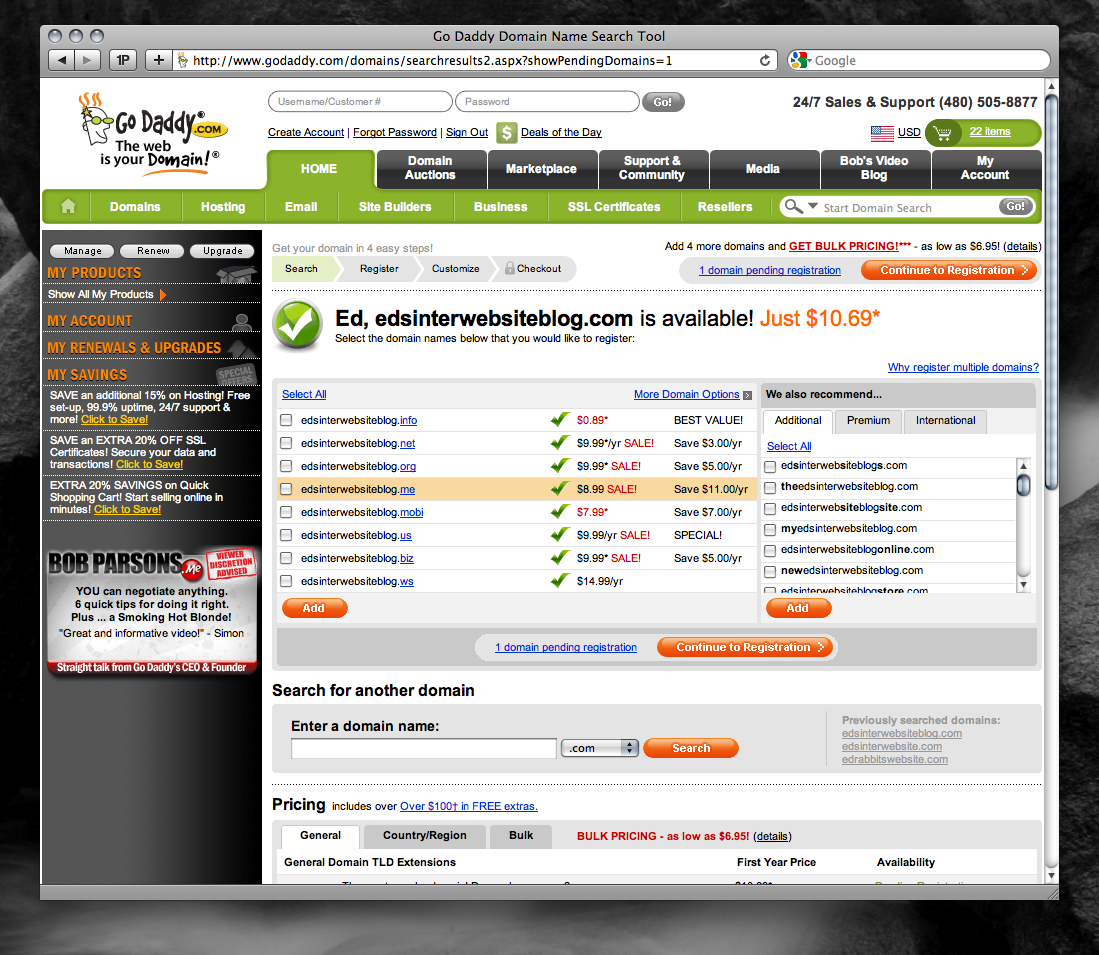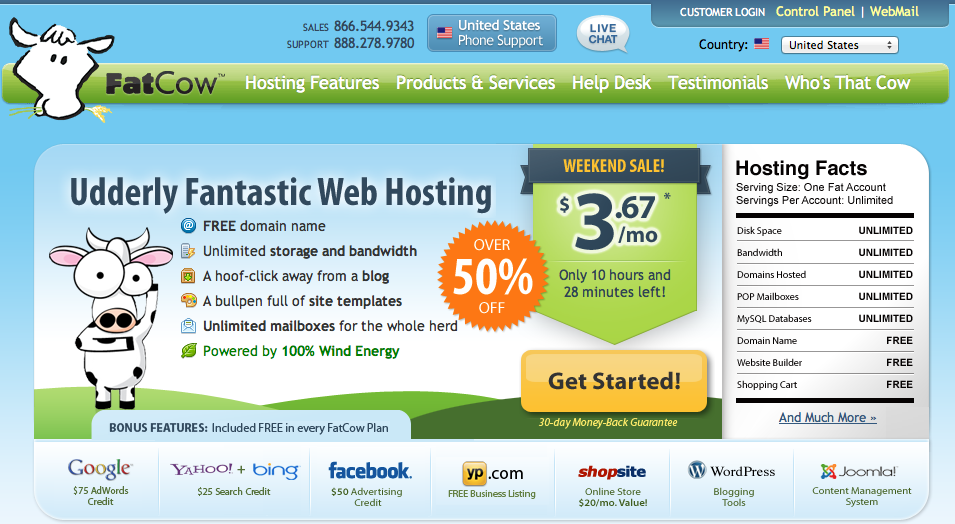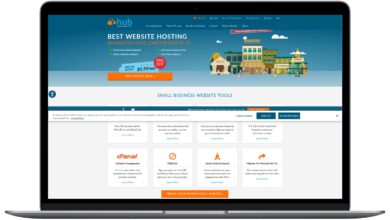
In our fast-paced digital world, having a reliable web hosting company is akin to choosing the right home for your online presence. It’s where your website will reside, thrive, and welcome visitors from around the globe. Selecting the perfect web hosting provider is a critical decision that can significantly impact your website’s performance and success.
When you choose a web hosting provider, you will have first to know that choosing a provider for this service depends on the price of the account whether it is cheap or expensive, the service that is provided to customers, the type of host that suits you, the experience of the provider, features and reliability. There is no host which is hundred percent perfect, but you have to choose the best that suits your requirements. Below are the best providers for web hosting service ranked by users. To help you in this quest, we’ll explore the top five web hosting companies in this comprehensive guide.
1. WebHostingHub: When it comes to hosting your website, reliability is paramount. Web Hosting Hub, a well-established hosting provider, has garnered a reputation for its unwavering dependability. With a strong track record of uptime and excellent customer support, they offer a secure and stable environment for your online endeavors.
2. Inmotion: Where Speed and Innovation Converge: Inmotion, another prominent player in the hosting arena, places a strong emphasis on speed and innovation. Their high-performance hosting solutions are designed to turbocharge your website, ensuring rapid loading times and a seamless user experience. If you’re seeking cutting-edge technology, Inmotion might be the perfect fit..
3. Liquid Web: Powering Your Digital Ambitions: For those with grand digital ambitions, Liquid Web is a hosting provider that offers the scalability and power needed to support your growth. From managed hosting to specialized solutions, Liquid Web is a one-stop shop for businesses and individuals looking to expand their online presence.
4. GoDaddy: Simplicity Meets Versatility: GoDaddy, a household name in the hosting industry, offers a balance between simplicity and versatility. Their user-friendly platform is perfect for beginners, yet they also cater to more advanced users with a range of hosting options. If you’re looking for a hosting provider that covers the spectrum, GoDaddy is a strong contender..
5. Fat Cow: It offers unlimited e-mails, website builder and the ability to easily install many scripts. You will pay only $3.15 every month.
Comparative Analysis: A Closer Look
Now that we’ve introduced our top five web hosting companies let’s conduct a comparative analysis to help you make an informed decision. We’ll evaluate these providers side by side, considering key factors such as performance, pricing, and scalability. By the end of this guide, you’ll have a clear picture of which hosting company aligns with your specific needs.
Performance: The Need for Speed
Website speed is the digital equivalent of a well-paved highway. Slow loading times can deter visitors and impact your search engine rankings. We’ll examine the performance benchmarks of each hosting provider, including their server response times and content delivery networks (CDNs).
Pricing: Finding the Right Fit for Your Budget
Budget considerations are crucial when choosing a hosting provider. We’ll break down the pricing structures of these companies, highlighting any hidden costs, renewal rates, and special deals. After all, your digital home should be both comfortable and affordable.
Scalability: Preparing for Growth
As your website evolves and your online audience expands, scalability becomes essential. We’ll explore how each hosting provider accommodates growth, including options for upgrading plans, handling traffic spikes, and ensuring your website remains reliable even as it gains popularity.
Pros and Cons: A Balanced Perspective
To provide a well-rounded view, we’ll delve into the pros and cons of each hosting company. Every choice has its strengths and weaknesses, and understanding these nuances is vital in making the right decision for your online journey.
Factors to Consider When Choosing a Web Hosting Company
In addition to the performance, pricing, and scalability factors, there are other crucial considerations when selecting a web hosting provider. We’ll discuss the importance of assessing your website’s specific needs, technical requirements, and the level of customer support you require. Much like building a house, a strong foundation is key to a successful online presence.
Making Your Decision: Finding Your Digital Home
With all the information at your fingertips, it’s time to make an educated decision. We’ll offer guidance on how to weigh the factors that matter most to you, helping you find the perfect digital home for your website. Remember, your choice of hosting provider will influence the online experience you provide to your visitors.
Conclusion: Building Your Digital Dream Home
In the grand scheme of your online journey, selecting the right web hosting company is akin to choosing the foundation for your digital dream home. Just as a solid foundation ensures a stable and secure house, a reliable hosting provider like Web Hosting Hub ensures a stable and secure online presence. As you embark on this quest, may your digital home be a testament to your vision and a welcoming space for visitors from all corners of the world. Congratulations, and may your online journey be as remarkable as your destination.
Before we bid adieu, allow us to softly recommend Web Hosting Hub as a trusted partner for hosting your website. With their unwavering reliability and commitment to customer satisfaction, they provide the kind of digital home where your online dreams can flourish.





![Why 000webhost Will Help Your Business to Grow? [Detailed Review] 9 Web hosting 5 Why 000webhost Will Help Your Business to Grow? [Detailed Review] - 3](https://www.pouted.com/wp-content/uploads/2017/12/Web-hosting-5-390x220.jpg?x36710)

![Why Is Hostpapa Suitable for Your Small Business? .. [Detailed Review] 11 laptop web hosting Why Is Hostpapa Suitable for Your Small Business? .. [Detailed Review] - 5](https://www.pouted.com/wp-content/uploads/2018/11/laptop-web-hosting-390x220.jpg?x36710)

hello there and thanks on your info ? I’ve certainly picked up anything new from right here. I did on the other hand experience some technical points the use of this site, as I skilled to reload the web site lots of times previous to I may get it to load correctly. I had been considering if your web hosting is OK? Not that I’m complaining, but slow loading instances times will sometimes impact your placement in google and can injury your high quality score if ads and marketing with Adwords. Anyway I’m including this RSS to my e-mail and could look out for much extra of your respective fascinating content. Make sure you replace this again soon..